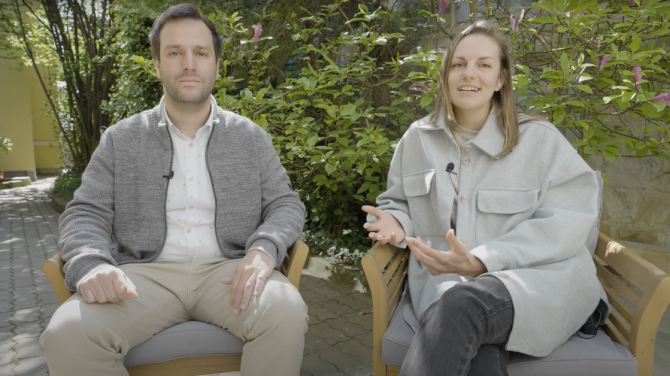“I don’t think that you can digitally transform a nation just from sitting in this chair. You have to involve other partners and so we are trying to nurture initiatives that are led by the private sector and the civil society because they will go on beyond political changes, they will set the agenda,” Sebastian Burduja, Romania’s Minister of Research, Innovation, and Digitalization tells The Recursive.
At the beginning of September, the Minister announced two ways in which startups will benefit from Governmental aid. One targets improving a law launched in the 90s, and the second one will set in motion financial support.
“We are working on improving legislation, where we seek to provide startups with a special status and not just consider them as ordinary SMEs to allow for more flexibility; and on a Romanian Innovation Fund, where the government will match the funding by angel investors and venture capital funds to help businesses overcome that initial hurdle,” Minister Burduja explains in the video interview.
The Minister declared that the scope is to support startups at the beginning of the road, when the risk is higher, with a €500M fund under the European Investment Fund (EIF). The budget is limited in the beginning to validate the model.
Sebastian Burduja has been Romania’s Minister of Innovation since May 2022. He is a Member of Parliament and the Vice President of The National Liberal Party (PNL). Prior to this, he has been deputy Minister of Finance and he has a background in political science and economics.
In this interview, we discuss with the Minister Romania’s plans for digitalization, the role of the IT sector in the Romanian economy, regional growth plans, and how he will ensure the continuity of the vision he presented in the long term, despite political changes.
Besides the two initiatives above, Sebastian Burduja shared that Romania’s innovation plans for the next couple of years will include:
- The government cloud project ensures citizens will have access to data;
- Digital identities allow Romanians to log into any government platform through facial recognition;
- Digital skills education to over 100K Romanians from small, rural, communities;
- Launching and closing a company online.
“I think that Romania has embarked on a road with no return. And we are condemned to succeed and transform our economy and society through digitalization.” – Sebastian Burduja, Minister of Research, Innovation, and Digitalization
How startup-friendly is Romania?
In the past year, The Recursive has been reporting on the evolution of the local ecosystem, with a keen focus on how startup-friendly Romania is. So far, the country has approved the digital nomad visa, and will soon move forward with the digital IDs initiative.
In regards to the tech startup ecosystem, the country has seen some movement to make the laws friendlier, for both investors and entrepreneurs, and aims to grow unicorns locally.
It also plans to develop the microelectronic vertical with a €500M government fund, part of the National Recovery and Resilience Program (NRRP); and launch a €400M fund of funds to grow equity investments by 2026.





